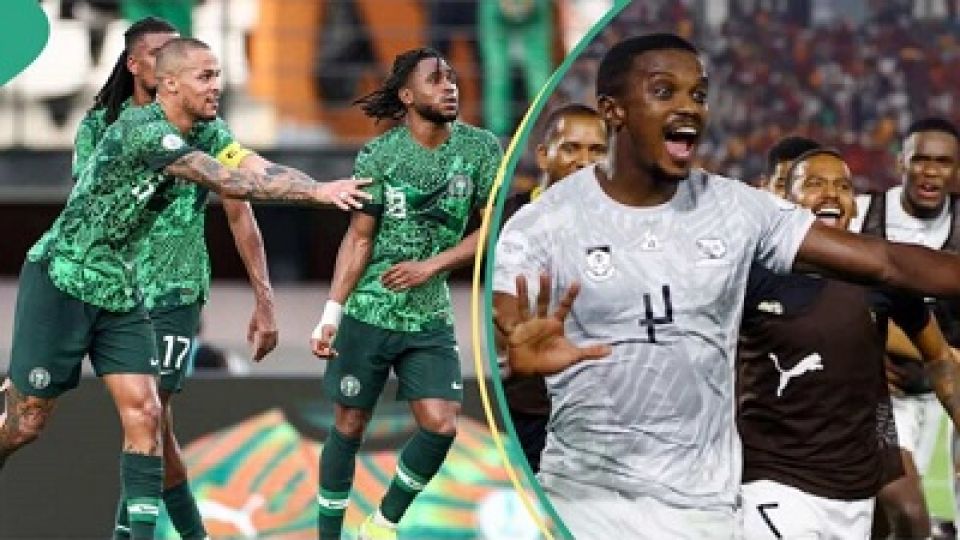by SAVIOUS KWINIKA
JOHANNESBURG, (CAJ News) – THE Africa Cup of Nations (AFCON) Cup semi-final encounter between Nigeria and South Africa has triggered another diplomatic tiff between the two countries that have a long political rivalry.
The two teams clash at the Stade Bouaké in Bouaké, Côte d’Ivoire, but on the eve of the match (Wednesday), diplomatic sparks flew between the two governments.
This after the Nigerian High Commission to South Africa urged its citizens to be “watchful” and “mindful” when celebrating or watching this encounter.
“The attention of the Nigeria High Commission Pretoria has been drawn to potentially inflammatory online comments made by a section of South African citizens against Nigerians living in host country, largely influenced by the upcoming 2024 African Cup of Nations (AFCON) semi-final match between the Super Eagles and the Bafana Bafana on Wednesday 7th February 2024,” the statement read.
Nigeria are the Super Eagles and South Africa are Bafana Bafana.
The Nigerian High Commission said it was concerned about South Africans issuing on social media comments such as: “Nigerians cooking jollof rice” before the match, and showing “pepper to Nigerians if the Bafana Bafana lose to the Super Eagles.”
Such conduct is seen as stereotypical. A social media conflict has been raging around the entertainment industry, sparked by accusations that Nigeria had “stolen” the Amapiano music genre from South Africa.
“In this regard, the High Commission hereby advises the Nigerian community (in South Africa) to be watchful of their utterances, be mindful of where they choose to watch the match especially in public places, and refrain from engaging in loud, riotous or provocative celebrations should the Super Eagles win the match,” it stated.
However, South Africa’s Department of International Relations and Cooperation (DIRCO), did not take kindly to the advisory by the Nigerian High Commission.
“This is a very unfortunate and regrettable statement issued by our Nigerian friends. It creates unnecessary alarm and tension,” said DIRCO spokesman, Clayson Monyela.
He recalled that Bafana Bafana have played the Super Eagles many times arguing there was no history of soccer hooliganism associated with the outcome of such encounters.
“South Africans pose no threat to Nigerians. We’ll engage our Nigerian counterparts through diplomatic channels further on this,” Monyela said.
The public threw itself into the fray as the two nations squabbled off the field and tensions threatened to boil over on social media.
Commentator Kennedy Muvhuso said sport had never defined South Africa’s relationship with other countries.
“Yes, we do have rivalries but that ends in responsible acceptance of whatever the outcomes of the day are. The Nigerian embassy is reckless and must be brought to book,” he said.
Opposition Patriotic Alliance (PA) leader Gayton McKenzie, responded: “We now see why they (Nigerians) are so arrogant and disrespectful towards South Africans and our country. They take it from the attitude of people in high places in government.”
Zimbabwean academic and political analyst, Prof. Ibbo Mandaza, argued in support of the Nigerian High Commission.
“There’s nothing wrong with the High Commissioner’s warning. It is a real risk, with due respect,” Mandaza insisted.
The number of Nigerians living in South Africa is unconfirmed but estimated at 500 000.
The two countries have competed for positions at multilateral organisations, the United Nations (UN) and other different forums. The Nigerian government has also taken South Africa to task over intermittent breakouts of xenophobia.
There have been fallouts in the sporting scene too, none other than the Africa Cup of Nations.
The then defending champions, Nigeria, withdrew on the eve of the 1996 tournament in South Africa, under pressure from then dictator, Sani Abacha, after Nelson Mandela criticized the latter’s military government’s human rights record.
South Africa eventually won the tournament. Nigeria won their last tourney, on South African soil, in 2013.
– CAJ News

